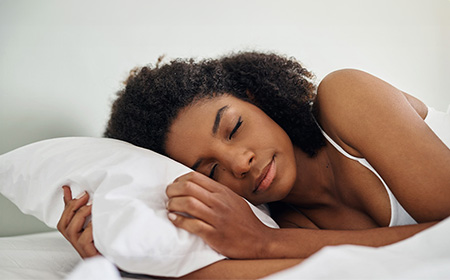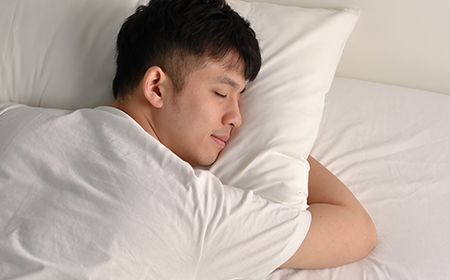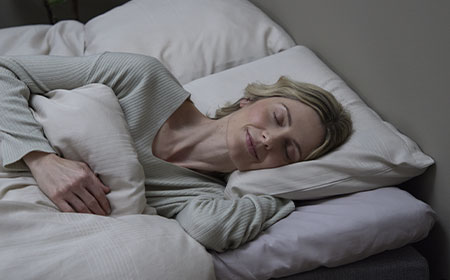Stress and sleep problems go hand in hand for many people and stress can often be the cause of a lack of sleep and the body’s way of indicating that it is under mental pressure. Conversely, lack of sleep can also lead to stress, because the brain is not receiving its necessary rest and recovery. Read on for tips and practical advice on how you can tackle sleep issues in relation to stress.
How to sleep better when you are stressed
- Make sleeping a positive experience by making sure there is a pleasant environment in the bedroom. Simple things such as the colour of your bedroom, can help create a calming atmosphere which may help you sleep much easier
- Breathing exercises from yoga and meditation can be great tools for reducing stress and sleep problems as it helps you relax. Deep breathing is actually the body’s natural means of relieving stress
- Get any lingering thoughts out of your mind by writing them down on a piece of paper, and then throw the paper away. The racing thoughts will then probably disappear from your mind, making it easier to calm down
- Get to the core of your stress problem by talking about it. Simply sharing one’s concerns with others can be quite a relief that helps cure sleep problems due to stress
- Paradoxically, the more you struggle to sleep, the harder it becomes. So try to refrain from stressing about the fact that you cannot sleep
- Consider changes in your exercise and dietary habits in order to achieve greater well-being and good sleep, and to become stress-free
- The scent of lavender soothes the body and makes it easier to doze off, therefore try using fragrance sticks on your bedroom
- Seek out professional help from your doctor or a sleep specialist, if the problem persists for a longer period of time
We have previously provided tips on how generally to get better sleep. You can also benefit from these sleeping tips, if stress is keeping you awake.
How does stress affect your sleep
When stress prevents us from sleeping, an entirely natural mechanism is kicking in. This mechanism is a kind of alert, which is embedded in everyone as a basic instinct. When we are stressed, the brain believes that there is danger round the corner, hence why it's very hard to calm down and stay calm, so that sleep can set in.
The reason why stress and sleep problems are so closely linked is that the brain is working overtime at night when we are stressed, and this makes it virtually impossible to close our eyes. If you finally fall asleep, there is great risk that you could easily wake up and be more easily disturbed by light and sounds than usual.
The sleep problem can persist
Even though you become clear of stress, the after-effects can show up in the form of sleep problems. This may be due to the fact that we are worried about our lack of sleep, and that the body has become accustomed to being in a heightened state of alert. This leads to even more fatigue. This can make it difficult to tackle the following day’s tasks and requirements which may lead to even more stress.
Sleep problems due to stress can be a vicious circle
A brief period of poor sleep is not necessarily an indication of stress, nor is it necessarily dangerous. It's not a problem until lack of sleep becomes a permanent condition. Stress and sleep can quickly turn into a vicious circle, which is why it is vital to do something about the condition before it gets too grave.
Sources:
https://sleepfoundation.org/ask-the-expert/stress-and-insomnia
http://www.huffingtonpost.com/2014/09/17/stress-and-sleep_n_5824506.html




